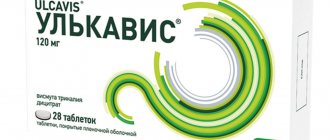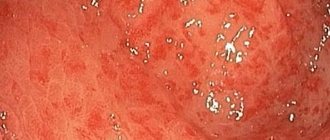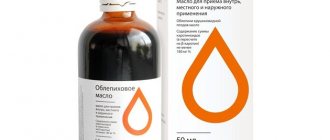Treatment of any disease is a whole complex of procedures and medications. Sometimes you look at the list and think that the doctor probably played it safe! After all, gastritis and ulcers are such studied diseases! Maybe you don’t need to take everything that is prescribed? What if we treat one thing and cripple the other?
Gastric ulcers and gastritis, although they affect the same system of the body, are different diseases. Therefore, both the principles of treatment and medications may differ, but at the same time overlap with each other. Consider tablets for gastritis and ulcers.
Method of treating the disease
An ulcer is a violation of the integrity of the gastric mucosa.
An ulcer is a violation of the integrity of the mucous membrane of the stomach or duodenum.
There are many reasons for this disease, but the main one is infection by the microorganism Helicobacter pylori. Ulcer treatment tactics include the use of the following groups of drugs:
- Antisecretory agents
- Bismuth preparations
- Antibiotics and antibacterial agents
- Drugs that improve gastrointestinal motility
- Antacids
- Antisecretory drugs
These substances reduce the production of gastric juice and its aggressive effect on the mucous membranes. This group of drugs includes proton pump inhibitors, H2-histamine receptor blockers, M1 anticholinergics.
Proton pump inhibitors are prescribed for confirmed lesions of Helicobarker pylori. These substances reduce the aggressiveness of hydrochloric acid by up to 80%. Doctors prescribe the following drugs:
- Omez or omeprazole, zerocid – 1–2 capsules per day
- Pariet or rabeprozole – 1–2 tablets per day
- Nexium or ecomeprazole – 1–2 capsules per day
When taking drugs of this group, the effect of antibiotics and antibacterial substances increases. Take them 1 hour before meals. H2-histamine receptor blockers have a similar effect to proton pump inhibitors. You can drink them at any time, regardless of meals. Doctors prescribe:
- Ranitidine, Rantak, Zoran 150 mg 2 times a day
- Famotidine, also known as gastrosidine, blockacid, 1 capsule 2 times a day
M1 anticholinergics reduce the production of hydrochloric acid and the enzyme pepsin. Currently, the drug "Pirenzepine" is prescribed at a dose of 50 mg 2 times a day. The tablets should be taken before meals.
Side effects
According to the instructions for Famotidine, the following are possible with its use:
- reactions from the digestive system: dry mouth, loss of appetite, nausea, feeling of fullness in the stomach;
- from the central nervous system: tinnitus, dizziness, decreased vision, tremor;
- from the genitourinary system: delayed diuresis, disruption of the menstrual cycle, decreased libido;
- from the heart and blood vessels: changes in heart rate, bradycardia, decreased blood pressure.
In case of overdose, vascular collapse, vomiting, loss of coordination, confusion, acute pancreatitis, drug-induced hepatitis, bronchospasm, and myalgia are likely.
Bismuth preparations
De-Nol
Medicines based on bismuth have a coating effect on the inner lining of the stomach, protecting it from the action of gastric juice.
In addition, bismuth preparations suppress the growth and reproduction of Helicobacter. Doctors prescribe the following drugs:
- Vikalin
- De-nol
- Bismuth nitrate
Ranitidine bismuth citrate is a complex preparation of bismuth with an H2-histamine receptor blocker. All these medications are taken 1–1.5 hours after meals. Bismuth preparations color feces black. This is not a contraindication for further treatment with bismuth.
Gastroprotectors – protection of the mucous membrane
Drugs of this pharmacological group are also included in the complex treatment of peptic ulcer disease. They create an enveloping protective shell on the surface of the mucous membrane of the intestines and stomach. The main active ingredient in most of them is bismuth salts: De-nol, Vikair, Vikalin, Sucralfate, Carbenoxolone, Misoprostol.
De-nol, in addition to creating a protective film on the ulcerative surface, promotes their scarring. Carbenoxolone is based on licorice root. It increases the viscosity of mucus, making it a reliable barrier between the walls of the stomach and duodenum and pepsins with hydrochloric acid.
It is perfectly excreted from the body through the intestines. Increased blood pressure is one of its serious side effects. Misoprostol is also a very effective remedy for peptic ulcers, despite its side effect of diarrhea.
Antibiotics and antibacterial drugs, pyrokinetics and antacids
Antibiotics are medications aimed at suppressing Helicobacter pylori.
Among the antibiotics chosen are broad-spectrum agents - clarithromycin, tetracycline, amoxicillin.
In case of infection by a resistant strain of Helicobacter, medications are selected individually after testing for sensitivity to antibiotics.
This group of drugs is aimed at suppressing Helicobacter. Trichopolum or metronidazole is traditionally used as an antibacterial drug.
If Helicobacter is not detected, and the ulcer is caused by other reasons, then antibiotics are not used for treatment. Pyrokinetics improve the movement of food through the gastrointestinal tract, relieve dyspepsia, heartburn, and a feeling of heaviness in the stomach. Traditionally, cerucal, metoclopramide, and motilium are prescribed. These drugs are not used to treat ulcers on their own.
Antacids are prescribed to relieve heartburn. The choice of these drugs is huge - Maalox, Gastral, Almagel. The course of taking antacids should not exceed 14 days. Additionally, patients are prescribed vitamin complexes, antispasmodics – no-spa, drotaverine, baralgin.
In case of a mild condition, treatment is carried out on an outpatient basis. In severe cases - bleeding, suspected perforation - only in a medical institution.
When to use
Both drugs have similar indications for use:
- ulcerative (erosive) gastritis of the stomach and duodenum during the period of exacerbation and for the purpose of prevention;
- pancreatitis;
- reflux;
- erosive diseases of the esophagus and other organs of the gastrointestinal tract;
- heartburn due to hyperchlorhydria;
- chronic dyspepsia with pain or lack thereof;
- systemic mastocytosis;
- Zollinger-Ellison syndrome;
- treatment of damage to the gastric mucosa caused by non-steroidal anti-inflammatory drugs;
- preventive measures to prevent recurrence of ulcerative formations;
- eradication of Helicobacter pylori.
It is not recommended to take both medications together, since their effect will be blocked at best, and at worst the effect will increase several times, which will lead to adverse consequences.
Dopamine receptor blockers and electrolyte solutions
Regidron is a drug for the treatment of gastritis.
Gastritis is often accompanied by nausea, vomiting and epigastric pain. Sometimes diarrhea develops. To relieve dehydration and remove beneficial microelements, taking electrolyte solutions is indicated.
Usually, rehydron or dextrose solution is prescribed. The drugs are administered orally for mild to moderate gastritis, and intravenously for severe inflammation.
Dopamine receptor blockers are used to eliminate the symptoms of dyspepsia - nausea and vomiting.
Traditionally, cerucal, metoclopramide, and egronil are prescribed. These drugs improve the motor activity of the gastrointestinal tract and prevent the backflow of intestinal contents into the stomach cavity.
What's better? Comparison
To understand whether to choose Ranitidine or Omez, you should compare these drugs. Both products have almost identical indications.
Medicines are used for gastrointestinal diseases, to reduce the acidity of stomach juice. Thanks to this, the digestive system is stimulated.
The drugs have antiulcer properties. But what is the difference between Ranitidine and Omez, gastroenterologists know.
Medicines differ in their mechanism of action. Thus, Omez suppresses the function of the proton pump, and Ranitidine is considered a histamine antagonist. This means that the tablets have a similar effect, but their modes of influence are different.
The drugs have different basic compositions. Omez contains omeprazole, and the second drug is Ranitidine. The latter is produced in Russia, Serbia and India, while Omez is produced in India.
Both medications have similar contraindications and side effects. The products are available in the form of tablets and medicinal solution.
Regarding the dosage regimen, Omez is taken twice a day, 20 mg. The daily dose of Ranitidine is 300 mg, divided into 2 doses.
When thinking about whether Ranitidine or Omeprazole is better, you need to consider the prices of the drugs. The cost of Omez is about 100 to 300 rubles. The price of Ranitidine is cheaper - about 100 rubles.
Gastroenterologists recommend choosing Omez. The drug is a more modern, effective remedy. Omeprazole can be taken by elderly patients. Also, the medicine is relatively safe and can be taken for a long time.
Absorbents and antihistamines
Enterosgel - used to treat acute gastritis.
Adsorbents are prescribed for acute gastritis. These substances collect toxins on their surface and remove them from the body. The treatment protocol includes the following drugs:
- Activated carbon
- Enterosgel
- Polysorb
- Polyphepan
For allergic gastritis, the use of antihistamines is indicated. For acute or chronic inflammation, these drugs are prescribed as a preventive measure. Some drugs are taken 3 times a day - suprastin, others - loratadine, cetrin, elcet - once a day is enough.
Differences between Omez and Ranitidine
Ranitidine is an outdated remedy, and today pharmacies offer more modern and effective medications for gastritis and pancreatitis. They contain completely different active ingredients, and the formulas of modern medicines are constantly being improved.
Both drugs perfectly relieve pain, but the action of Omez is prolonged, which contributes to a long-lasting therapeutic effect.
For Ranitidine, modern analogues are Novo-Ranidin, Ranital, Gistak. For Omez, the production of which, according to patients, today is no longer as high quality as it once was Swedish - Omeprazole, Omezol, Vero-omeprazole, Chrismel.
The formula of Ranitidine is stable and stable, but the origin of Omez causes a lot of controversy regarding the country of origin (India).
Antacids for gastritis
Phosphalugel - used in the treatment of acute and chronic gastritis.
These drugs must meet the following criteria: neutralize hydrochloric acid, effectively remove toxins, reduce irritation of the stomach walls, and produce an analgesic effect.
Absorbed antacids - Rennie, Bourget's mixture - enter into a chemical reaction with gastric juice.
After the effect of the drug ends, hydrochloric acid begins to be produced in greater quantities than before taking the antacid. Therefore, these drugs are not used in the treatment of gastritis.
In acute and chronic cases, non-absorbable antacids are indicated. The choice of these drugs is wide - Almagel, Maalox, Phosphalugel, Taltsid, Vikalin.
The use of antacids in the treatment of ulcerative lesions
Stomach and duodenal ulcers are a serious disease
The tradition of using drugs in this group goes back more than one decade. Their therapeutic effect is based on the chemical reaction of gastric juice with the reagents that make up antacids. Thanks to this, its aggressive effect on the walls of the stomach and intestines is reduced.
Such reagents are magnesium and aluminum hydroxides, like Maalox and Almagel, or aluminum phosphate, like Phosphalugel. They differ significantly from obsolete soda-based preparations; they envelop the walls of the stomach without being absorbed into them. Antacids can adsorb pepsin, the acidity of which decreases sharply when exposed to them.
Concomitant use
The simultaneous use of Omeprazole and Ranitidine is possible only in the presence of gastroesophageal reflux disease. In this case, Omez is prescribed in a dose of 0.2 g, which is divided into 3 doses. The amount of Ranitidine is 0.15 g for 2 doses.
In other situations, the compatibility of Ranitidine and Omeprazole will not be appropriate. After all, both drugs have a similar effect.
In addition, the use of ranitidine with antiulcer medications makes the therapy ineffective. And the concentration of Omez, when used together with its analogue, on the contrary, increases.










